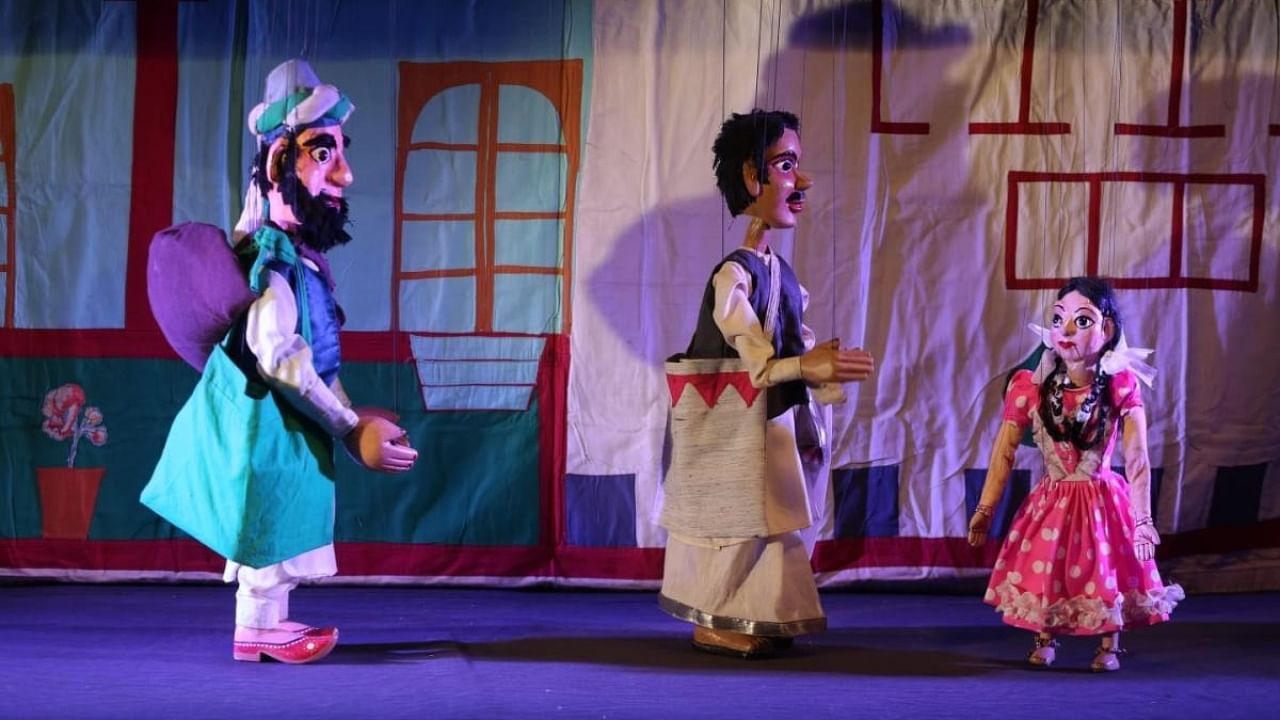
Hundreds of puppets from around India and abroad will come alive at the 12th edition of the Dhaatu International Puppet Festival at the Mandala Cultural Centre on Kanakapura Road.
The centre is situated next to the Silk Institute metro station.
Based on the theme ‘Tradition and Innovation’, the festival, which began on January 6, is an example of how a dying, traditional art can be revived and kept vibrant through innovation.
The festival, which involves performances from troupes from across India and abroad, will also feature conferences and talks.
Read | Get creative to acquire art
The venue will house a puppet gallery, probably the largest of its kind in the country, displaying puppets from across the world like the Czech Republic, England, Spain, Bulgaria, Thailand, Indonesia, South America and states like West Bengal, Rajasthan, Jharkhand, besides Karnataka.
The festival, spread over a month, began with the Children’s Workshop on December 8 and an Open House to explain puppetry to students.
“The festival will continue for two weeks after the main three-day festival at Mandala. This is the first full-fledged show we are having after the pandemic and has involved a lot of work,” says Anupama Hoskere, who adds that this year’s festival includes unique features like an all-women puppet troupe from Kerala with their leather puppets, an Austrian troupe with their marionette show, a show on the famous book ‘Kabuliwala’, and a show called ’31 Dosas’, a humorous performance on the favourite breakfast dish dosa.
“Dhaatu’s Ramayana Sapta Swara, which involves 100 wooden puppets tracing the epic from Ayodhya to Lanka, using seven languages, will be an epic performance.”
With string puppets, marionettes, leather puppets and rods puppets in action, the festival gives a glimpse of the rich tradition behind the art form and the people and troupes that are keeping it alive.
Tribute to a stalwart
“The festival will also pay tribute to the late Ranganatha Rao, a stalwart in this art form,” says Anupama, who credits some of her skills and inspiration to Rao, who not only helped revive the rod puppetry art from but helped it stay relevant through his innovations.
“Ranganatha Rao was the crucial link between the past and the contemporary, without his effort and initiative, the rare art form would have faded away,” said Anupama, who aims to develop Mandala into a platform for puppetry and its practitioners.